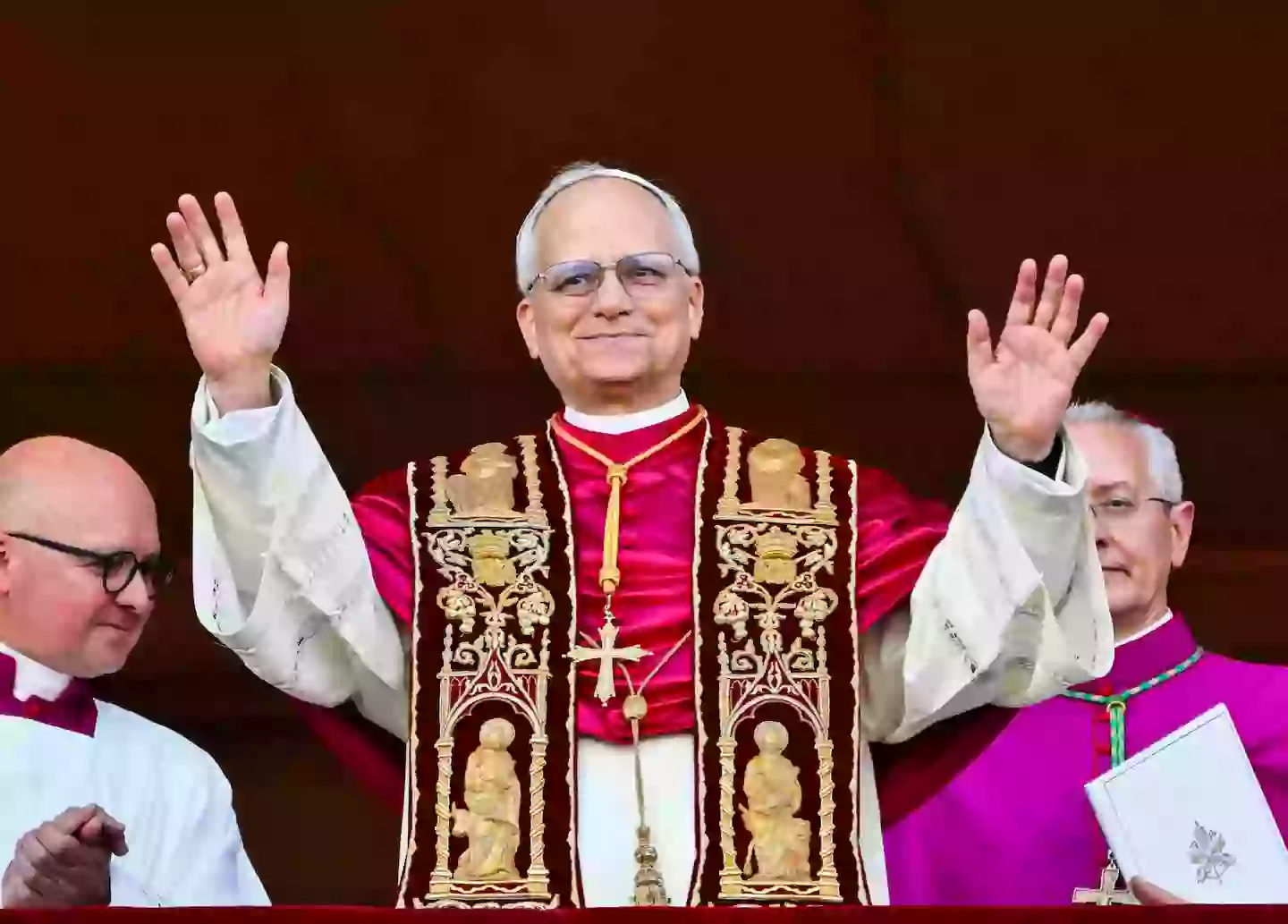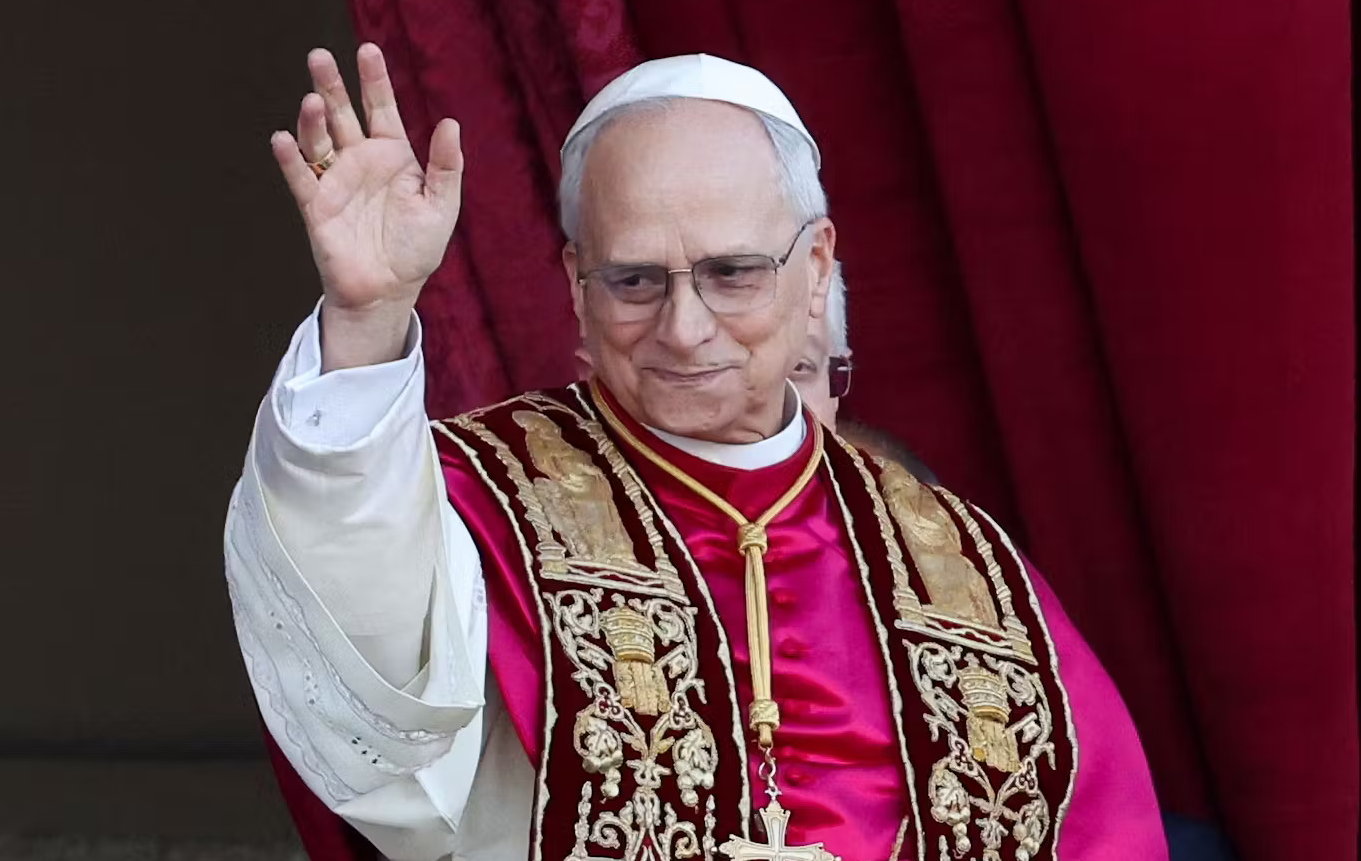In a moment that captured the attention of the global community, Pope Leo XIV’s first press conference as head of the Catholic Church has left many wondering if his remarks were a veiled critique of U.S. President Donald Trump. The comments, which centered around communication and understanding, came shortly after Trump made an unusual claim that he played a role in the selection of the new pope—a statement that, if anything, seemed to add to the drama surrounding his appointment.
Pope Leo XIV, the first American to be appointed as the leader of the Catholic Church, took office amid much fanfare. His selection marks a historic moment for the Vatican, but the circumstances surrounding his appointment and Trump’s response to it added an unexpected layer to the event. Trump, in a post on his social media platform Truth Social, implied that his return to the White House played a significant part in the election of Pope Leo XIV, despite the fact that the pope’s selection is entirely the result of a conclave process and is not influenced by external political figures.
Trump’s Claim: Taking Credit for the Pope’s Selection
On May 12, President Trump posted on Truth Social, a social media platform he founded, claiming credit for the selection of Pope Leo XIV. In the post, Trump responded to a segment by ABC’s Martha Raddatz, during which she asserted that his involvement in the papal selection was non-existent. Trump retorted, writing, “So funny to watch old-timer Martha Raditz on ABC Fake News (the Slopadopolus show!) this morning, blurt out that, effectively, Pope Leo’s selection had nothing to do with Donald Trump.” Trump continued, “It came out of nowhere, but it was on her Trump Deranged Mind. Remember, I did WIN the Catholic Vote, by a lot! Bob Iger should do something about the losers and haters he’s got on his low-rated shows. It’s time for change. MAGA!!!”
Trump’s claim to have influenced the selection of the new pope, which was not substantiated by any evidence or by the processes of the Vatican, raised many eyebrows. The claim seemed to be part of his ongoing rhetoric, where he often emphasizes his strong influence over various groups, including his assertion of winning the “Catholic vote” in previous elections. But the papal process, involving a conclave of cardinals, operates independently from political figures, making Trump’s suggestion highly contentious and questionable.

(ALBERTO PIZZOLI/AFP via Getty Images)
Pope Leo XIV’s Press Conference: A Call for Dialogue and Restraint
Hours after Trump’s post, Pope Leo XIV held his first press conference as the head of the Catholic Church, where his statements appeared to stand in stark contrast to Trump’s divisive and confrontational communication style. In his address to journalists, Pope Leo spoke passionately about the need for more open dialogue, understanding, and the rejection of hateful rhetoric.
The Pope, speaking in Italian, emphasized the importance of respectful communication and the power of words to heal and build bridges, rather than to divide. He said, “The way we communicate is of fundamental importance: We must say ‘no’ to the war of words and images, we must reject the paradigm of war. Let us disarm communication of all prejudice and resentment, fanaticism, and even hatred; let us free it from aggression. We do not need loud, forceful communication, but rather communication that is capable of listening and of gathering the voices of the weak who have no voice.”
These remarks, which focused on reducing aggression and fostering understanding, seemed to be a pointed response to the type of rhetoric often associated with President Trump, particularly his use of all-caps posts on social media and his combative comments towards media outlets. Many viewers saw the Pope’s words as a critique of Trump’s frequent attacks on journalists and his inflammatory communication style, especially given the President’s tendency to use aggressive language and “war-like” rhetoric on social media platforms.
A Subtle ‘Shade’ at Trump?
The Pope’s comments about “loud, forceful communication” being counterproductive seemed to be a subtle jab at Trump’s public persona, which is often characterized by his inflammatory statements. Twitter users, quick to notice the contrast, pointed out that Pope Leo XIV’s call for more thoughtful and humble communication was in stark contrast to Trump’s typical communication approach, which many see as inflammatory and polarizing.
One Twitter user, commenting on a tweet about the Pope’s press conference, wrote, “Cc: @WhiteHouse @realDonaldTrump,” insinuating that the Pope’s remarks were aimed directly at the U.S. President. Others interpreted the Pope’s statements as “shading” Trump, suggesting that the new Pope was indirectly criticizing the American leader’s frequent use of divisive language. While the Pope did not mention Trump by name, the timing and content of his message seemed deliberate, especially in the context of Trump’s earlier comments about the papal selection.
Pope Leo XIV’s focus on the importance of communication that listens and uplifts rather than diminishes could also be seen as an implicit rebuke of the media attacks that Trump regularly engages in. Trump’s hostile relationship with the press is well-documented, and the Pope’s call for understanding and dialogue stands in stark contrast to the combative style often associated with the President.
Pope Leo XIV’s Praise for Journalists
In addition to his remarks about communication, Pope Leo XIV also praised journalists for their critical role in society, particularly those working in the most dangerous conditions. He acknowledged the courage of journalists who report from conflict zones, risking their lives to bring information to the public. The Pope said, “The Church recognizes these witnesses—I am thinking of those who report on war even at the cost of their lives—the courage of those who defend dignity, justice, and the right of people to be informed, because only informed individuals can make free choices.”
This statement further distinguished Pope Leo XIV from Trump, who has consistently criticized the media, labeling certain outlets as “fake news” and accusing journalists of bias. By praising the work of journalists, especially those in perilous situations, the Pope reinforced the importance of objective reporting and the role of the media in fostering an informed, free society.
The Pope’s emphasis on the value of accurate reporting and truth-telling in the face of danger is a stark contrast to Trump’s frequent labeling of the media as the “enemy of the people” and his constant attacks on journalists who dare to criticize him. The Pope’s message seemed to affirm the importance of protecting journalists and ensuring they can continue their work without fear of retaliation or repression.
Pope Leo XIV’s Message to the United States
As the press conference continued, Pope Leo XIV was asked by NewsNation correspondent Robert Sherman if he had any messages for the United States. His answer was both simple and profound: “Many. God bless you all.”
This brief response, while not explicitly aimed at Trump, carried a sense of universality and goodwill. It was a message that emphasized faith and prayer rather than political division or rhetoric. While Trump’s often harsh, combative statements create division, the Pope’s words were intended to unify and offer a blessing to the country, signaling a desire for peace and understanding rather than conflict.
Conclusion: A Tense Political and Religious Landscape
Pope Leo XIV’s press conference has sparked conversation not only because of his historic appointment but also because of the subtle tension between the new Pope and President Trump. Trump’s claim that he influenced the Pope’s election has been widely discredited, but it nonetheless set the stage for a more complex dynamic between the Vatican and the White House.
The Pope’s comments about communication and journalists, along with his emphasis on dialogue over aggression, stand in stark contrast to the President’s usual style of communication. While Pope Leo XIV did not directly reference Trump, the timing and content of his message could not be overlooked. As the world watches this delicate balance between religion and politics unfold, it will be interesting to see how this relationship develops and how the Pope’s approach to leadership and communication contrasts with that of the U.S. President. For now, Pope Leo XIV’s message of peace, understanding, and respect remains at the forefront of his leadership, offering a refreshing contrast to the often combative nature of modern political discourse.

